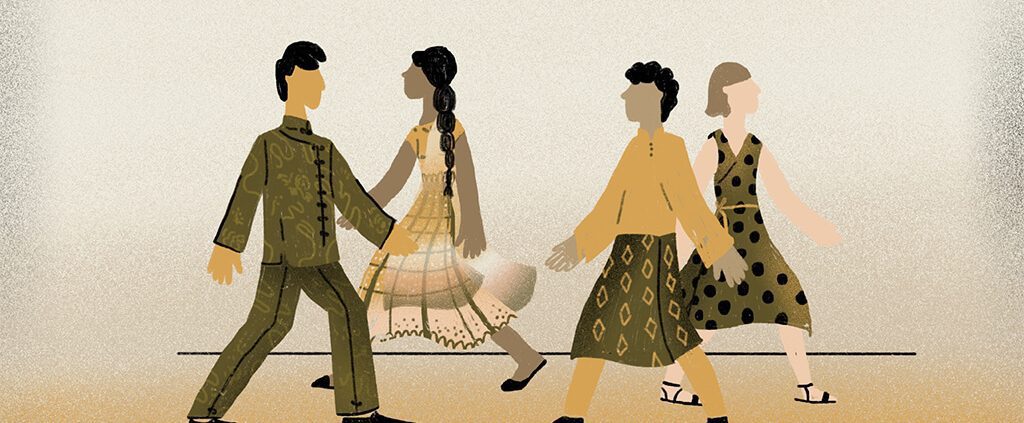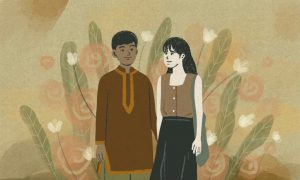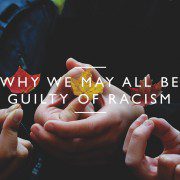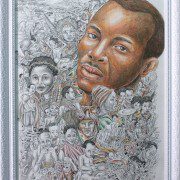We Need to Talk About Race Matters
Written by Eunice Lin, Singapore
As a Singaporean Chinese, I’ve always been part of the racial majority. Although my heart is for the overlooked and voiceless, I knew that no amount of ministry with and among them would enable me to experience what being on the margins, or “othered”, is like. So I looked forward to experiencing life as a racial minority when I moved to the US.
One night, four friends and I went out for dinner. I was the only non-American, and didn’t realise that I was getting rather nasty service because I was Chinese and a foreigner. Having never received poor service because of my skin colour or nationality, it did not cross my mind that I was being “othered”. I just thought the waitress was incompetent!
But my friends noticed, and were offended on my behalf and insisted that we leave. I thought they were overreacting, even after they explained to me what had happened, and how I was not treated right.
As I reflected on that incident, I realised that it didn’t feel like a big deal to me because (1) it was my first experience (unlike other people of colour who’ve experienced countless micro-aggressions that add up over time); (2) I had people standing up for me; and (3) I was in no way harmed (unlike the experience and reality of many others, especially in the black community).
While racism (in Singapore) is definitely not as rife as it is in the US, this incident made me conscious of how unconscious I’d been about my race and the privilege that came with it simply by being the majority. It made me question if I had ever witnessed my friends of minority races being slighted for their skin colour. Had I been unaware and oblivious to what was happening to them or, worse yet, been unknowingly complicit in it? This was just the start of what God was beginning to open my eyes to.
Another time, having lived barely two months in Seattle, a conversation with a new friend really shook me. I told him about Community Dinners that I had been attending to connect with those on the margins of society. I shared that what I loved most about these dinners is that one’s race, nationality, socio-economic status, or “presenting issues” did not matter at the dinner table.
It was a refreshing change, given how long I’d been burdened by the way people on the margins, such as those with disabilities, mental health conditions, addictions, rough sleepers, or the homeless, were often not as warmly welcomed and embraced in churches.
While acknowledging the beauty and radical welcome of this initiative, my friend pointed out that by my saying one’s race and ethnicity did not matter, I was minimising their God-given distinctions of race, culture, and backgrounds. I was failing to see God’s intended purpose for difference and diversity. I initially felt defensive and thought he was missing my point: it wasn’t that race didn’t matter; it just wasn’t a big deal.
But I had not realised how not seeing race/colour was just as harmful as seeing people first and foremost by their race/colour. While my life experiences and encounters have not been influenced by my skin colour (or so I thought), this wasn’t the case for others. For many, their race adversely affected their opportunities in life and how they are perceived, leaving them disadvantaged, singled out, or left out because of their skin colour. While I realised race is a big deal, I just didn’t see it because I’d not been subjected to racism.
Rereading Scripture with New Lenses
I began examining how my theology, culture, and upbringing have shaped how I read the Bible and live out my faith.
I saw with fresh significance that Jesus was slain, and purchased by His blood “persons from every tribe and language and people and nation” (Revelation 5:9–10). No one is excluded from His family, or marginalised because of their nationality, gender, or socio-economic status (Galatians 3:28). Moreover, God doesn’t ask us to downplay our differences simply to “keep peace”. Rather, He calls us to be peacemakers, to create unity amidst our diversity, as we partner with our Father to reconcile everyone as one body of Christ.
But as I reflected on these issues, I was struck by how there were clear blind spots in the way we live as Christians. For example, in Singapore, although foreign domestic workers (FDWs) live in the same space as their employers—who rely on them for countless aspects of their lives—they are often not treated with honour as one who bears God’s image.
I began to see that when Scripture exhorts us to treat others better than ourselves, it wasn’t just referring to our friends or guests. It includes those whom society deems unnecessary to treat with respect, or those apparently undeserving of grace and hospitality, including a runaway slave (Philemon 1:16–17). If God’s kingdom values are what we live by, then it must be evident in every aspect of our lives, seen or unseen, expected or not by society.
I began to see that for the gospel to be good news on this side of eternity for all who are created in His image, a peacemaker would need to speak up about and work against injustices, inequalities, and powers that privilege some and diminish others (Matthew 5:19, 6:10, 25:31–46; 1 Corinthians 12:12–26). The ministry of reconciliation would have to be an ongoing spiritual process that involves forgiveness, repentance, and justice, to restore broken relationships and systems to reflect God’s original intention for all creation to flourish.[1]
Seeing People through God’s Eyes
But I soon learnt that it was also not enough to seek individual change and ignore the groups that have shaped individuals and the communities in which we live. Because racism is not just the mean, intentional actions of an individual towards someone else.
Like other forms of oppression, racism is not only based on racial prejudice (stereotypes, distortions, and preconceived judgements and opinions of others). Rather, racism is a system of advantage based on race. It is the creation of societal structures by the groups in power that reward those who look and think like us, and exclude, discriminate, or disadvantage those who are not.[2]
While we may not think that we in the church have more power and privilege than others, the statistics prove otherwise. Based on the General Household Survey in 2015, Christians in Singapore are overwhelmingly Chinese, better educated, and wealthier than Singaporeans of other religions. Privilege does not just belong to the well-heeled but to those who can choose whether we want to support issues or ideas that may not directly impact us.
Hence, to address racism, we need to do more than examine our personal beliefs about and actions towards others. We also have to explore the ways in which we inadvertently participate in upholding the cultural messages and institutional policies and practices in society.[3]
I increasingly saw the importance of recognising the ways the church continues to be complicit in racism, classism, and xenophobia. Without social and corporate repentance, there can be no reconciliation and people’s dignity and worth will continue to be diminished and disregarded.[4]
As I reread the Bible looking for these aspects, I was struck by how God’s people (especially the leaders He appointed) were not just judged for their personal sin of greed or idolatry, but also for the nation’s, especially in the way they oppressed and mistreated the vulnerable.
This was something God takes seriously, for at the root of injustice is idolatry—of our comforts, well-being, privilege, wealth, power, and status—and the ways in which we subjugate and use others to secure these things at their expense. Moreover, Paul’s letters were written to churches, not individuals. I began to see that when the gospel was far from a private affair, it was able to transform entire households, towns, peoples, and social structures.
I believe the Singapore church as a whole has a role in being a sign and signpost of God’s preferential care for the lowly and oppressed. Do we see them? And when we do, how do we look at them? Or do we look away?
Learning to See Differences and See Differently
It begins with learning to see differences and to see differently. As a church, we need to examine our biases in whose voices we seek out, hear, amplify, and trust, and whose we ignore, downplay, and exclude. We have to evaluate how we can represent our diverse society, so that our church community better reflects God’s vastness beyond what we, the majority, embody. We must do more to care for the foreigners in our midst who have little voice and say in how they are treated.
Will we take time to get to know them as individuals made in God’s image, to view them as more than cheap sources of labour, but as men and women created, known and seen by our Father? Will we partner God in speaking truth and working for reconciliation and restoration of all peoples, as we allow the Spirit to reveal and transform the biases and prejudices that we all have?
As pastors and leaders, heads of households, parents, teachers, any change we hope to make in others and the systems we have influence over must first begin with self-work. We can begin by following Jesus who “did not regard equality with God as something to be exploited, but emptied himself” and gave up His life that we might live. May we become a people who not only never exploit others or allow others to be exploited, but who give up and use the privilege, power, and positions we have to look after the interests of others (Philippians 2:3–8).
Footnotes:
[1] Brenda Salter McNeil, Roadmap to Reconciliation: Moving Communities into Unity, Wholeness, and Justice (Downers Grove, Ill: InterVarsity Press, 2015), 21.
[2] Ibid., 26.
[3] Beverly Danial Tatum, Why Are All the Black Kids Sitting Together in the Cafeteria?—And Other Conversations about Race (New York: Basic Books, 2003), 87.
[4] Brenda Salter McNeil and Rick Richardson, The Heart of Racial Justice: How Soul Change Leads to Social Change (Downers Grove, Ill: InterVarsity Press, 2004), 33.
Editor’s Note: This article was adapted from “Race Matters” in Good News For Bruised Reeds: Colours of the Kingdom by Graceworks. Republished with permission.
Check out the full story and other stories in the collection here.












Leave a Reply
Want to join the discussion?Feel free to contribute!